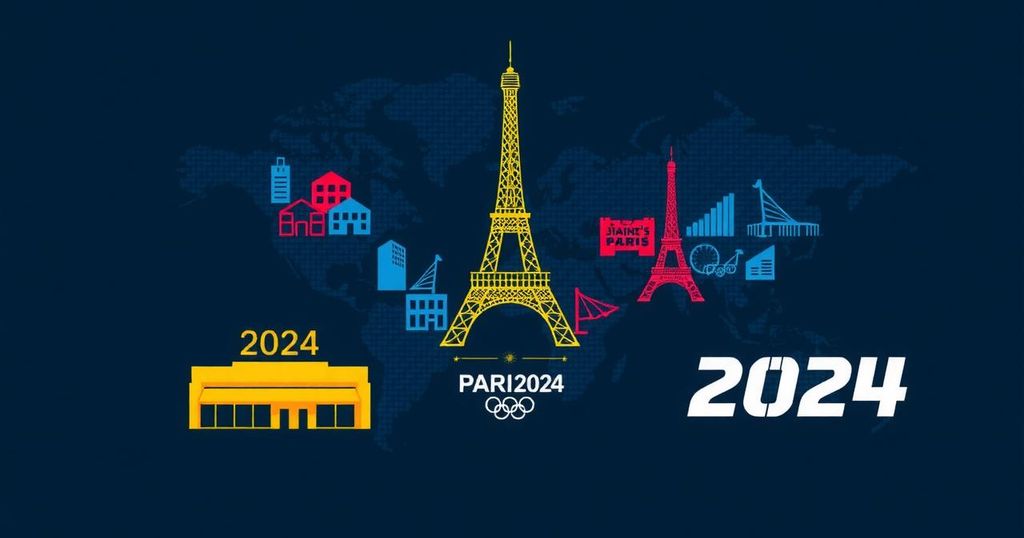Impact of the 2024 Olympics on Parisian Businesses: A Mixed Legacy
The 2024 Olympics, hosted in Paris, were characterized as a remarkable success for the city; however, they also brought unforeseen challenges for various local businesses. With a promise of an unprecedented influx of tourists and substantial economic gains, business owners anticipated a summer filled with high sales and increased foot traffic.
Regrettably, as the events came to pass, many in the service sector reported disappointing outcomes that starkly contrasted their expectations. Significant security measures instituted around Olympic venues in central Paris led to accessibility issues that profoundly affected commerce. For instance, Tom Denaive, who operates a family-owned jewelry shop strategically situated between the Louvre Museum and Place de la Concorde, described the situation as “dramatic”. Access to essential tourist areas was notably restricted, including metro station closures and prohibitions on pedestrian access to popular sites such as the Tuileries Garden.
Marina Orlando, a manager at the renowned luxury candle brand Diptyque on rue Saint-Honoré, echoed these sentiments. Despite an influx of tourists, she reported a staggering 29% drop in sales during August compared to the previous year. Orlando stated, “We were given assurances that the Olympics would generate incredible business for us; nonetheless, our expectations were not met.”
Government statistics indicate that around 1.7 million international visitors graced Paris during the Olympic period, alongside an additional 1.4 million domestic tourists. Olivia Grégoire, Minister for Companies, Tourism, and Consumption, declared that the country’s investment appeared to be worthwhile. However, shop owners indicated that the majority of these visitors were focused on attending sporting events rather than engaging in shopping. Many customers had already exhausted their budgets on accommodations and tickets, leaving little for retail purchases.
The logistical arrangement of hosting the Games in the city center rather than in an Olympic park further compounded the challenges faced by local businesses. An extensive security apparatus, involving approximately 45,000 police officers supported by thousands of military personnel, was deployed to ensure safety. This included barricades along the River Seine that complicated navigation throughout the city, lengthening the commute for shoppers.
Patrick Aboukrat, representing a collective of 190 local vendors, categorized the impact of the Olympics as “catastrophic”, noting a significant decrease in sales averaging between 35% and 40% from mid-June to the end of July. He described the atmosphere leading up to the Games as unusually quiet and acknowledged a considerable surplus of inventory due to the lack of customer traffic.
Moreover, merchants on Île de la Cité, the isle housing the Notre Dame Cathedral, experienced drastic turnover losses, estimated between 40% and 50%. The mayor’s decision to implement safety measures via security barricades around the island significantly hindered access to the area.
While some government officials, including Minister Grégoire, sought to mitigate concerns about the financial repercussions by stating that a panel will be established to address compensation requests from adversely affected businesses, many local owners remain dissatisfied with the current situation.
Jean-Marc Banquet d’Orx, president of a union representing over 2,000 Parisian hotels and restaurants, asserted confidently that the enduring benefits of the investments made ahead of the Games would eventually manifest; however, he acknowledged the frustration voiced by many business operators.
In conclusion, while the Olympic Games were heralded as a significant achievement for the city of Paris, they also underscored the fragility of local commerce amidst large-scale events and restrictive security protocols. The experience has prompted vital discussions about the balance between safety and economic vitality in future major gatherings.








Post Comment